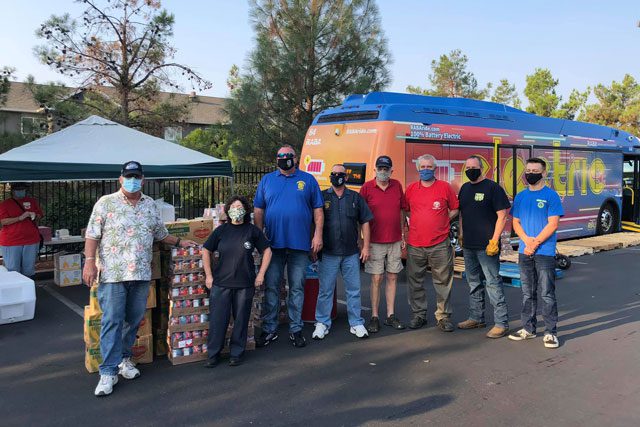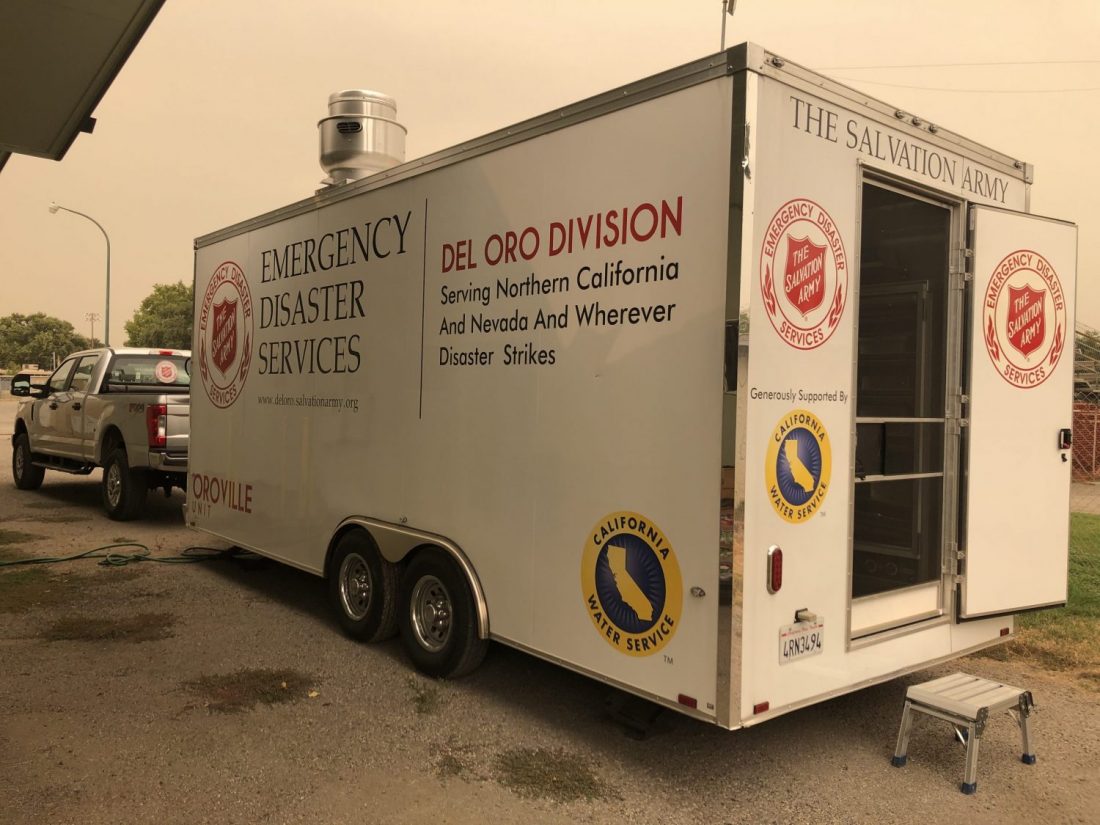Restoration, renewal and reconciliation are offered to everyone through Christ’s sacrificial death and resurrection (Ephesians 2:14-18). This powerfully demonstrates God’s love for us and the value placed on humanity. In Jesus, God was prepared to make this self-offering in order to recreate, renew and restore all of creation (2 Corinthians 5:17).
When we respond to God’s love, we begin to live with different values—God’s values. We live the prayer “Your kingdom come, your will be done on earth as it is in heaven” (Matthew 6:10). We learn that the overflow of truly loving God is to love our neighbor as well (Mark 12:30-31). As people who have been reconciled to God through Christ, we join in God’s reconciling work in creation (2 Corinthians 5:19). Like Jesus, we learn to care for people who are called the least and the lowest (Matthew 25:40). In such ways, we strive to make God’s kingdom here on earth a visible reality. This is a struggle, a spiritual battle (Ephesians 6:12).
When it comes to human trafficking and modern slavery there is much we don’t know. But these 10 Scripture passages help to illuminate the issue through the Word of God.
So God created mankind in his own image, in the image of God he created them; male and female he created them. — Genesis 1:27
We care about the issue of human trafficking and modern slavery because we believe that every single person, whether child or adult, female or male, is made in God’s image and is, therefore, valuable and worthy of dignity. Human trafficking dehumanizes people, turning them into objects and commodities. Our hope is to see people restored into the fullness of who God created them to be.
He went to Nazareth, where he had been brought up, and on the Sabbath day he went into the synagogue, as was his custom. He stood up to read, and the scroll of the prophet Isaiah was handed to him. Unrolling it, he found the place where it is written: “The Spirit of the Lord is on me, because he has anointed me to proclaim good news to the poor. He has sent me to proclaim freedom for the prisoners and recovery of sight for the blind, to set the oppressed free, to proclaim the year of the Lord’s favor.” Then he rolled up the scroll, gave it back to the attendant and sat down. The eyes of everyone in the synagogue were fastened on him. He began by saying to them, “Today this scripture is fulfilled in your hearing.” — Luke 4:16-21
When Jesus announced his mission as Messiah, he quoted Isaiah 61:1-2, saying that he had come to bring good news, proclaim release and healing, and offer freedom. Jesus came to offer salvation that starts in the here and now. As the Body of Christ, we are charged with the same mission: to offer new life through Christ to those who are oppressed.
“Shout it aloud, do not hold back. Raise your voice like a trumpet. Declare to my people their rebellion and to the descendants of Jacob their sins. For day after day they seek me out; they seem eager to know my ways, as if they were a nation that does what is right and has not forsaken the commands of its God. They ask me for just decisions and seem eager for God to come near them. ‘Why have we fasted,’ they say, ‘and you have not seen it? Why have we humbled ourselves, and you have not noticed?’ “Yet on the day of your fasting, you do as you please and exploit all your workers. Your fasting ends in quarreling and strife, and in striking each other with wicked fists. You cannot fast as you do today and expect your voice to be heard on high. Is this the kind of fast I have chosen, only a day for people to humble themselves? Is it only for bowing one’s head like a reed and for lying in sackcloth and ashes? Is that what you call a fast, a day acceptable to the Lord? “Is not this the kind of fasting I have chosen: to loose the chains of injustice and untie the cords of the yoke, to set the oppressed free and break every yoke? Is it not to share your food with the hungry and to provide the poor wanderer with shelter— when you see the naked, to clothe them, and not to turn away from your own flesh and blood? Then your light will break forth like the dawn, and your healing will quickly appear; then your righteousness[a] will go before you, and the glory of the Lord will be your rear guard. Then you will call, and the Lord will answer; you will cry for help, and he will say: Here am I. “If you do away with the yoke of oppression, with the pointing finger and malicious talk, and if you spend yourselves in behalf of the hungry and satisfy the needs of the oppressed, then your light will rise in the darkness, and your night will become like the noonday. — Isaiah 58:1-10
We are not truly honoring God through our worship and rituals if we are simultaneously ignoring the plight of the oppressed.
The Lord said, “I have indeed seen the misery of my people in Egypt. I have heard them crying out because of their slave drivers, and I am concerned about their suffering. So I have come down to rescue them from the hand of the Egyptians and to bring them up out of that land into a good and spacious land, a land flowing with milk and honey—the home of the Canaanites, Hittites, Amorites, Perizzites, Hivites and Jebusites. And now the cry of the Israelites has reached me, and I have seen the way the Egyptians are oppressing them. So now, go. I am sending you to Pharaoh to bring my people the Israelites out of Egypt.” But Moses said to God, “Who am I that I should go to Pharaoh and bring the Israelites out of Egypt?” And God said, “I will be with you. And this will be the sign to you that it is I who have sent you: When you have brought the people out of Egypt, you will worship God on this mountain.” — Exodus 3:7-12
God heard the cries of the Israelites, who were enslaved and oppressed in Egypt. He promised to bring his people out of slavery. God does not desire for anyone he loves to be enslaved, and he loves everyone.
“Speak up for those who cannot speak for themselves, for the rights of all who are destitute. Speak up and judge fairly; defend the rights of the poor and needy.” — Proverbs 31:8-9
Through Scripture, God issues a call to advocate on behalf of those whose voices are quieted through oppression.
Arise, Lord! Lift up your hand, O God. Do not forget the helpless. Why does the wicked man revile God? Why does he say to himself, “He won’t call me to account”? But you, God, see the trouble of the afflicted; you consider their grief and take it in hand. The victims commit themselves to you; you are the helper of the fatherless. Break the arm of the wicked man; call the evildoer to account for his wickedness that would not otherwise be found out. The Lord is King for ever and ever; the nations will perish from his land. You, Lord, hear the desire of the afflicted; you encourage them, and you listen to their cry, defending the fatherless and the oppressed, so that mere earthly mortals will never again strike terror. — Psalm 10:12-18
The prayers and cries of individuals who are oppressed and exploited are heartfelt, and God hears them. God cares about those who are oppressed and exploited, and we should, too.
Endow the king with your justice, O God, the royal son with your righteousness. May he judge your people in righteousness, your afflicted ones with justice. May the mountains bring prosperity to the people, the hills the fruit of righteousness. May he defend the afflicted among the people and save the children of the needy; may he crush the oppressor. — Psalm 72:1-4, 12-14
The lives of every single person who is living under oppression are precious to God.
I waited patiently for the Lord; he turned to me and heard my cry. He lifted me out of the slimy pit, out of the mud and mire; he set my feet on a rock and gave me a firm place to stand. He put a new song in my mouth, a hymn of praise to our God. Many will see and fear the Lord and put their trust in him. — Psalm 40:1-3
Take time to pray for protection and deliverance for victims of human trafficking. Pray that they would feel and know God’s presence and experience the freedom he desires for them.
This is what the Lord says: “For three sins of Israel, even for four, I will not relent. They sell the innocent for silver, and the needy for a pair of sandals. They trample on the heads of the poor as on the dust of the ground and deny justice to the oppressed. Father and son use the same girl and so profane my holy name. … “I hate, I despise your religious festivals; your assemblies are a stench to me. Even though you bring me burnt offerings and grain offerings, I will not accept them. Though you bring choice fellowship offerings, I will have no regard for them. Away with the noise of your songs! I will not listen to the music of your harps. But let justice roll on like a river, righteousness like a never-failing stream! — Amos 2:6-7, 5:21-24
Our attempts to honor God are unacceptable if we attempt to worship in church services and religious events but ignore the plight of the oppressed and God’s call for justice in our daily lives.
Continue to remember those in prison as if you were together with them in prison, and those who are mistreated as if you yourselves were suffering. — Hebrews 13:3
Turning our backs and ignoring the injustice in our world is not an option. God calls us to identify with and suffer alongside those who are in bondage. He calls us to show true, active compassion.
See more at sajustice.com.
Do Good:
- Read more about The Salvation Army’s new international strategy to fight human trafficking.
- Learn about these 10 things you didn’t know about human trafficking.
- See more about what Scripture says in these 3 biblical stories of God’s restoration.
- See how you can get involved in the Fight for Good with The Salvation Army.
- Did you know The Salvation Army served more than 23 million Americans last year fighting hunger, homelessness, substance abuse and more—all in a fight for good? Where can you help? Take our quiz to find your cause and learn how you can join in today.

















